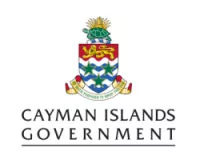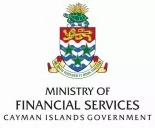The Cayman Islands Government welcomes the UK Government's announcement, made today, which recognises the work of Cayman and other Overseas Territories (OTs) toward establishing publicly accessible registers of company beneficial ownership as part of the global effort to increase transparency in financial services and tackle illicit finance.
The UK's 2023 deadline for these registers aligns with its campaign to advance publicly accessible company beneficial ownership registers as a global norm, as it believes that action on beneficial ownership information in the OTs should be complemented by improved public access to beneficial ownership information internationally.
In accordance with our 9 October, 2019 statement that responded to the UK's position on public registers in the OTs, Cayman has significantly strengthened and enhanced our beneficial ownership (BO) regime, as follows:
- A more advanced technology platform has been introduced for managing beneficial ownership information held centrally.
- The powers of the BO Competent Authority have been enhanced to verify beneficial ownership information, request additional information, and introduce penalties for non-compliance. The verification done by the BO Competent Authority further augments the quality assurance measures taken by the jurisdiction as BO data is initially verified by trust and company service providers.
- The threshold for beneficial ownership reporting in the definition of beneficial owner has been broadened from "more than 25%" to "25% or more".
- Powers have been introduced for corporate service providers to pursue clients for non-compliance and to report such steps to the BO Competent Authority.
- An administrative fines regime has been introduced with a breach in beneficial ownership obligations incurring a $5,000 fine, with a further $1,000 penalty every month until the issue is rectified. Where there is non-payment for 90 days, the BO Registrar has powers to strike the company off the register.
Cayman also notes that in its statement, the UK confirmed that the Exchange of Notes programme is working well, with the OTs supporting UK law enforcement with rapid access to information used to support ongoing criminal investigations.
Moreover, the UK acknowledged that many OTs have committed to global tax transparency standards, including the OECD's Common Reporting Standard; under which taxpayer financial account information is automatically exchanged for tax purposes. This reciprocal, automatic exchange of financial information addresses the secrecy that facilitates offshore tax evasion and provides evidence of tax non-compliance.
It should be noted that Cayman, in particular, was one of the early adopters of CRS with domestic legislation in place as of 2015 and automatic exchanges of information under CRS taking place since 2017.
Lastly, the ongoing commitment of the Cayman Islands to transparency and international cooperation is further evidenced by the recent introduction of publicly accessible information on the directors and officers of Cayman Islands companies.
The content of this article is intended to provide a general guide to the subject matter. Specialist advice should be sought about your specific circumstances.


